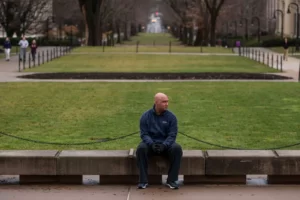President Obama made headlines this month when he issued an executive order requiring all companies that do business with the federal government to provide paid sick leave for their employees.
The president’s announcement follows a growing number of cities and states that have mandated that workers receive paid sick leave. As legislation continues, we’ve provided some background for covering this timely topic.
Who’s Included and Excluded from Paid Sick Leave Laws
Obama’s directive allows workers who work for companies with government contracts to earn one hour of sick leave for every 30 hours they work. Workers can collect up to seven paid sick days annually to recover from an illness or care for a sick relative. The order also allows paid leave for victims of domestic violence, stalking or sexual assault.
The executive order will affect more than 300,000 workers. But that’s a fraction of the estimated 43 million workers without access to paid sick leave. Looking just at the private sector, nearly 40 percent of workers do not get paid sick time, according to a report from the U.S. Department of Labor.
The Bureau of Labor Statistics broke down who has access to paid sick leave earlier this year. Its data shows what percentage of workers from various sectors and demographics receive paid sick leave. Use this data to mine story ideas or deepen your reporting.
Sick Days and Public Assistance
According to the Department of Labor, without paid sick days, workers who need time off and are covered by the Family Medical Leave Act reported relying on public assistance and charitable organizations to meet their financial needs in times of illness.
Talk with social service agencies and charities about the financial hardships of their clients and any patterns they’ve seen related to illness or sick relatives.
Employee Productivity and Retention
The University of Washington released a study in 2013 and another study again in 2014 evaluating Seattle’s 2012 ordinance. Both studies identified some of the negative consequences local business owners experienced as a result of the ordinance. Those that cited challenges included keeping paid sick leave records in accordance with the ordinance, difficulty with payroll vendors and loss of work responsibility when an employee took leave.
Proponents of paid sick days say that companies with paid leave policies see lower turnover rates.
The Center for Economic Policy and Research released a report in 2014 examining the impact of Connecticut’s statewide law on local businesses.
How do these findings stack up against what businesses or lawmakers in your state are saying about paid sick leave? Find out whether businesses in your area believe local paid leave ordinances and laws have negatively or positively affected them.
Sick Days, Consumer Protection and Public Health
Public health experts tout paid sick leave as a deterrent to spreading communicable diseases to coworkers and consumers.
The American Public Health Association concluded in 2013 that paid sick days can reduce the spread of the flu at work.
Ask workers how they feel about paid sick leave in their own workplaces and in the retail or restaurant establishments they frequent.
If an ordinance exists in your community, check public health records to see if there has been a noticeable improvement in public health in the period since.
Legislating Paid Sick Leave
Senator Tom Harkin (D-Iowa) and Rep. Rosa DeLauro (D-Conn.) introduced the Healthy Families Act in both the 113th and 114th congressional sessions. The bill is currently in subcommittee.
Talk to local, state and federal lawmakers in your community. Would your U.S. congressman or congresswoman support a federal bill?
What about at your state legislature? What about at the local level?










